The Ottoman Empire was founded in 1299 AD by the Emperor Osman I (who lived approximately 1254 - 1323 AD). The name "Ottoman" is an anglicization of "Osman" (which may have been the Arabic variant of his Turkish name, "Ataman"). Little is known about him; in fact, it took a couple of centuries for historians to begin recording his story. As a result, it has been difficult to distinguish myth from true history. Nevertheless, he founded the monarchy which expanded aggressively with his descendants—eventually conquering the Byzantine Christians in 1453 and taking Constantinople. Constantinople, which had been center of the Latin-Christian world from the Fourth Century, was renamed Istanbul. The Ottoman Empire remained the political and economic bridge between Europe and the Middle East for six centuries.
It's important to note that the Crusades had already happened by the time the Ottoman Empire was founded. The Crusades (1095-1291 AD) refer to the war-faring campaigns of European Christians to reclaim Holy sites (and pilgrimage travel routes) which had been taken by Muslim colonizers. Although these Christian expeditions were largely unsuccessful, in 1299 AD (when Osman founded the new empire) the conflict was still front-of-mind for contemporaries on both sides of the religious divide.
The Ottoman Empire reached the zenith of its glory under the Emperor Suleiman the Magnificent (1520-1566). The Ottomans colonized a remarkably large tract, encircling much of the Mediterranean Sea. Besides Turkey, they took Greece, much of Yugoslavia (yet to be established), Hungary, Romania, Bulgaria, much of the Holy Land, Saudi Arabia, Egypt and a good portion of Northern Africa—converting most of the people to Islam as they conquered. There were also numerous "vassal states," colonial territories which fell-under the Ottoman umbrella.
Although the Ottomans were fierce fighters, modern technology in the Mid-1700's allowed other (foreign) forces to emerge dominant—specifically the Austro-Hungarian and the Russian Empires. This put the Ottomans at a technological disadvantage and their military dominance waned. During World War One, the Ottomans sided with the Germans and Austrians. They also have been accused of committing genocide against the Armenians, Assyrians and Greeks.
After World War One, young, educated leaders emerged who wished to modernize society and liberalize the Empire. Mustafa Kemal Atatürk was a leading reformer. He lead the country to independence, helped abolish the monarchy (in 1922) and was named the first president of the new Republic of Turkey (in 1923). Atatürk is credited with creating Modern Turkey—an independent, secular state which replaced the rote memorization of religious dogma with modern, science-based education (for both boys and girls). Atatürk encouraged the wearing of Western clothing, suits and hats, especially for men. Women were allowed to continue wearing traditional Muslim dress, however, Atatürk believed that they soon would adapt to Western fashions of their own volition.
Turkey maintained neutrality during World War Two. While they continued to conduct business with Nazi Germany, they also facilitated the escape of Jews from Nazi-occupied countries. And their neutrality "blocked" Germany from creating stronger alliances with other Arab countries. Finally, at the end of the war, Turkey declared war on Germany (February 1945), although they supplied no active combatants to fight with the Allies.
The cast iron bookends, shown above, capture a triumphant 19th Century Ottoman mounted warrior. They are well-sculpted, crisply cast and finished with an aged bronze patina. They were made by Hubley (Lancaster, PA) in the Twenties or Thirties. Please click on the photo above to learn more about these handsome bookends.
Though our Greenwich Village store is now permanently closed, LEO Design is still alive and well! Please visit our on-line store where we continue to sell Handsome Gifts (www.LEOdesignNYC.com).
We also can be found in Canonsburg, Pennsylvania, at The Antique Center of Strabane (www.antiquecenterofstrabane.com).
Or call to arrange to visit our Pittsburgh showroom (by private appointment only). 917-446-4248


